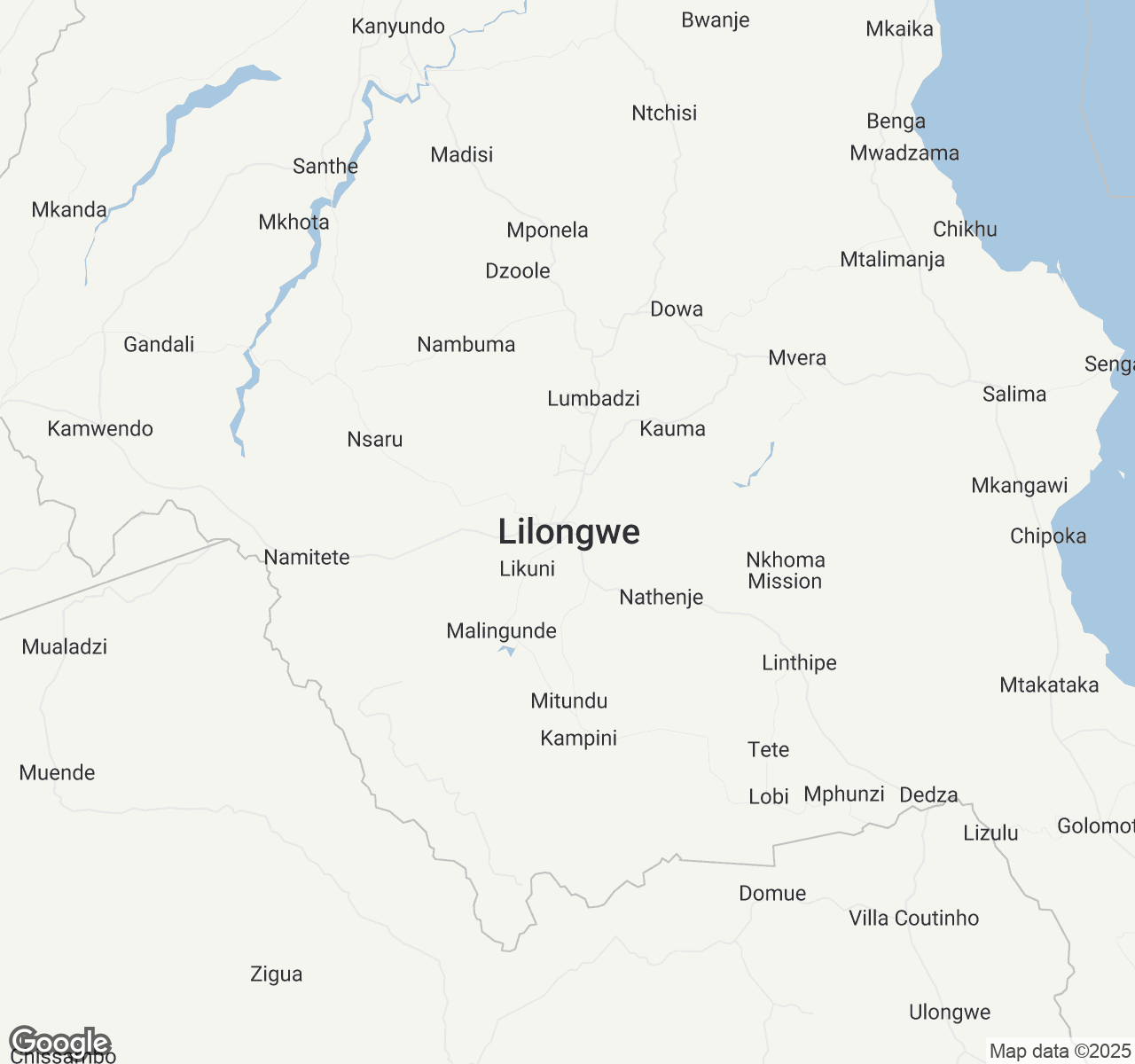
Things to Do in Lilongwe
Discover the best of Lilongwe
Plan Your Trip
Essential guides for timing and budgeting
Top Things to Do in Lilongwe
Discover the best activities and experiences. Book now with our trusted partners and enjoy hassle-free adventures.
Your Guide to Lilongwe
About Lilongwe
Lilongwe sits in Malawi's central highlands, a garden city where government buildings share space with local markets and residential streets thick with trees. The Old Town is authentic Malawi. In the markets, vendors sell textiles while the smell of nsima and chambo fish fills narrow alleys where locals speak Chichewa in steady, musical tones. The planned Capital City district runs on wide boulevards, diplomatic compounds, and new shopping centers—contemporary Africa on display. The people make Lilongwe work. Their warmth turns brief exchanges into friendships you won't forget, and time operates on different rules here. Business meetings stop for tea. Strangers swap stories and leave as friends. From the hilltop at Kamuzu Central Hospital, sunset washes the city in gold—proof that Malawi earned its reputation for hospitality.
Travel Tips
Transportation: Minibuses cover the city for 200-500 MWK ($0.12-0.30) per journey. Taxis have no meters - Old Town to City Centre costs 2,000-4,000 MWK ($1.20-2.40). Bolt operates here with rides typically 1,500-6,000 MWK ($0.90-3.60). Bicycle taxis (kabanza) are popular for short trips at 300-800 MWK ($0.18-0.48). Intercity buses to Blantyre cost 2,500-4,000 MWK ($1.50-2.40) and take 2.5 hours. AXA bus service is reliable. Motorcycle taxis charge 500-1,500 MWK ($0.30-0.90) for quick trips. Car rental starts at 25,000 MWK ($15) daily plus fuel.
Money: Malawian kwacha (MWK) is the primary currency. ATMs at Standard Bank and FDH Bank dispense cash but often have limits of 20,000-40,000 MWK ($12-24) per transaction. USD is accepted at hotels and some shops. Budget $25-40 daily. Mobile money through TNM Mpamba and Airtel Money is widely used for payments. Credit cards work at upscale venues but carry backup cash. Banking hours are Monday-Friday 8am-3pm. Tipping 10% at restaurants is standard. Exchange rates fluctuate frequently - check current rates at forex bureaus on City Centre.
Cultural Respect: Greetings are important - 'Moni' (hello) with a handshake using both hands shows respect. Dress modestly; tank tops and shorts above the knee are inappropriate in town. Pointing with your index finger is rude - use an open hand. Photography of people requires permission. Chitumbuka and Chichewa are local languages, but English is widely spoken. Church attendance is high on Sundays. Bargaining is expected at markets. Remove hats when greeting elders. The concept of time is flexible - 'Malawi time' means things start when they start.
Food Safety: Nsima (maize porridge) with relish costs 800-1,500 MWK ($0.48-0.90) at local eateries. Chambo fish from Lake Malawi runs 2,500-4,500 MWK ($1.50-2.70) grilled. Indian food at Sana Restaurant costs 3,000-6,000 MWK ($1.80-3.60) per dish. Street-roasted groundnuts cost 200-500 MWK ($0.12-0.30). Local beer like Carlsberg costs 800-1,200 MWK ($0.48-0.72). Mandasi (donuts) are 100-300 MWK ($0.06-0.18) each. Bottled water is 200-400 MWK ($0.12-0.24). Avoid dairy products unless properly refrigerated. Most restaurants close by 9pm.
When to Visit
Lilongwe's climate offers distinct seasons that cater to different travel preferences. The dry season (May-October) provides ideal conditions with temperatures ranging from 15-25°C, clear skies, and minimal rainfall (under 10mm monthly). This peak period sees accommodation prices increase by 30-40%, but offers perfect weather for exploring markets and outdoor activities. July-August brings cooler temperatures ideal for sightseeing, while September-October can reach 30°C but remain comfortable with low humidity. The wet season (November-April) transforms the landscape into lush greenery, with temperatures of 20-28°C but heavy rainfall (150-250mm monthly December-February). Accommodation drops by 25-35% during this off-peak period, though some rural roads become challenging. March-April has a sweet spot with decreasing rains and lively scenery. Key festivals include the Lake of Stars Festival (September/October) and Independence Day celebrations (July 6th). Budget travelers should consider the shoulder months of May and November for moderate weather and prices. Business travelers will find the dry season optimal, while photographers and nature lovers may prefer the dramatic skies and green landscapes of the wet season, particularly February-March when the rains begin to ease.

Lilongwe location map